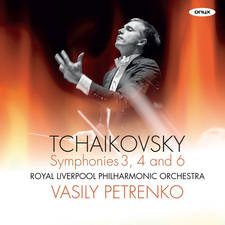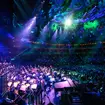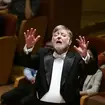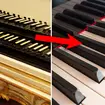The Full Works Concert - Wednesday 10 December 2014
Mendelssohn’s Violin Concerto and Beethoven’s Fourth Symphony are the key works in tonight’s concert.
A century and a half after its composition, the Violin Concerto by Mendelssohn remains one of the most regularly performed and most loved of all instrumental concertos. And ever since its birth, the work has had a rather special affinity with very young soloists. When Mendelssohn was a teenager, he forged a very strong friendship with fellow composer Ferdinand David. As well as being a fine writer of music in his own right, David was also one of the most accomplished violinists of his day, so Mendelssohn composed this concerto for him. It took Mendelssohn five years from start to finish, during which time he would regularly seek David’s advice on revisions, themes and structure. Its premiere in 1844 featured David at the fiddle and another composer, the Dane Neils Gade, conducting. The teenage Mendelssohn, who was inspired to compose this piece, would surely have been proud that, centuries on, it is still often the first choice for budding young soloists today.
Handel's Water Music Suite No.1 in F major was written for an outdoor performance for King George I on the river Thames. The king watched from the royal barge with various dukes and duchesses as the 50 musicians played nearby. The king enjoyed the music so much, he asked the musicians to play the complete set of three suites no fewer than three times over the course of the trip down the river.
The Pavane pour une infante defunte was written as a piano piece for Princesse Edmond de Polignac, whose father was Isaac Singer, the famous sewing machine manufacturer. Ravel was at pains to point out that, despite the title, the piece is not a funeral lament for a dead princess but ‘rather an evocation of the pavane that might have been danced by such a little princess as painted by Velazquez.’
The trouble with writing something as bold as the 'Eroica' symphony is that whatever was to come next was bound to be a disappointment. From the off, where the third symphony was declamatory and brash, Beethoven's fourth is subdued and moody. But that doesn't mean there isn't plenty to enjoy. In fact, the fourth has some of Beethoven's most poignant writing in it. The second movement reveals itself to be quite the melancholic masterpiece.
Felix Mendelssohn: Violin Concerto
Violin: Ray Chen
Daniel Harding conducts the Swedish Radio Symphony Orchestra
Georg Frederic Handel: Water Music Suite No.1
Neville Marriner conducts the Academy of St Martin in the Fields
Maurice Ravel: Pavane pour une infante defunte
Piano: Jean-Yves Thibaudet
Ludwig van Beethoven: Symphony No.4
Christopher Hogwood conducts the Academy of Ancient Music













